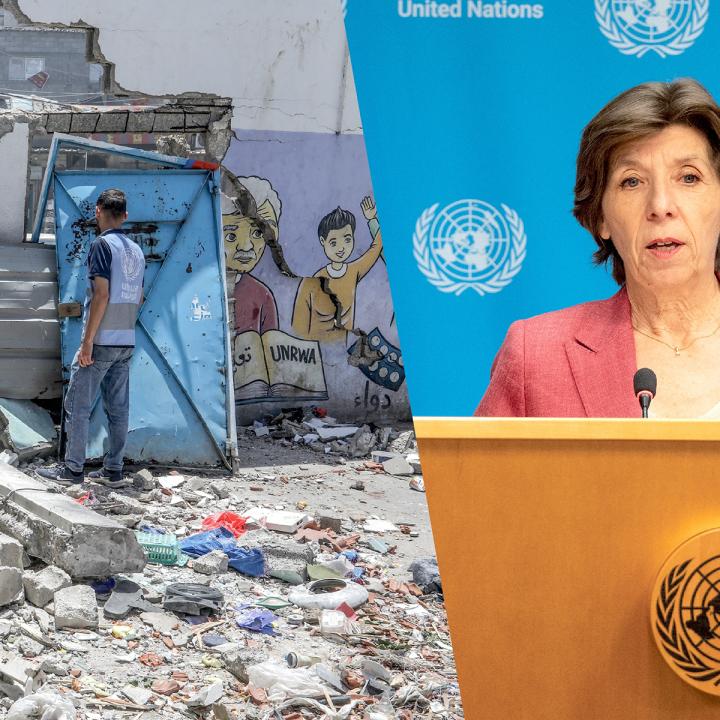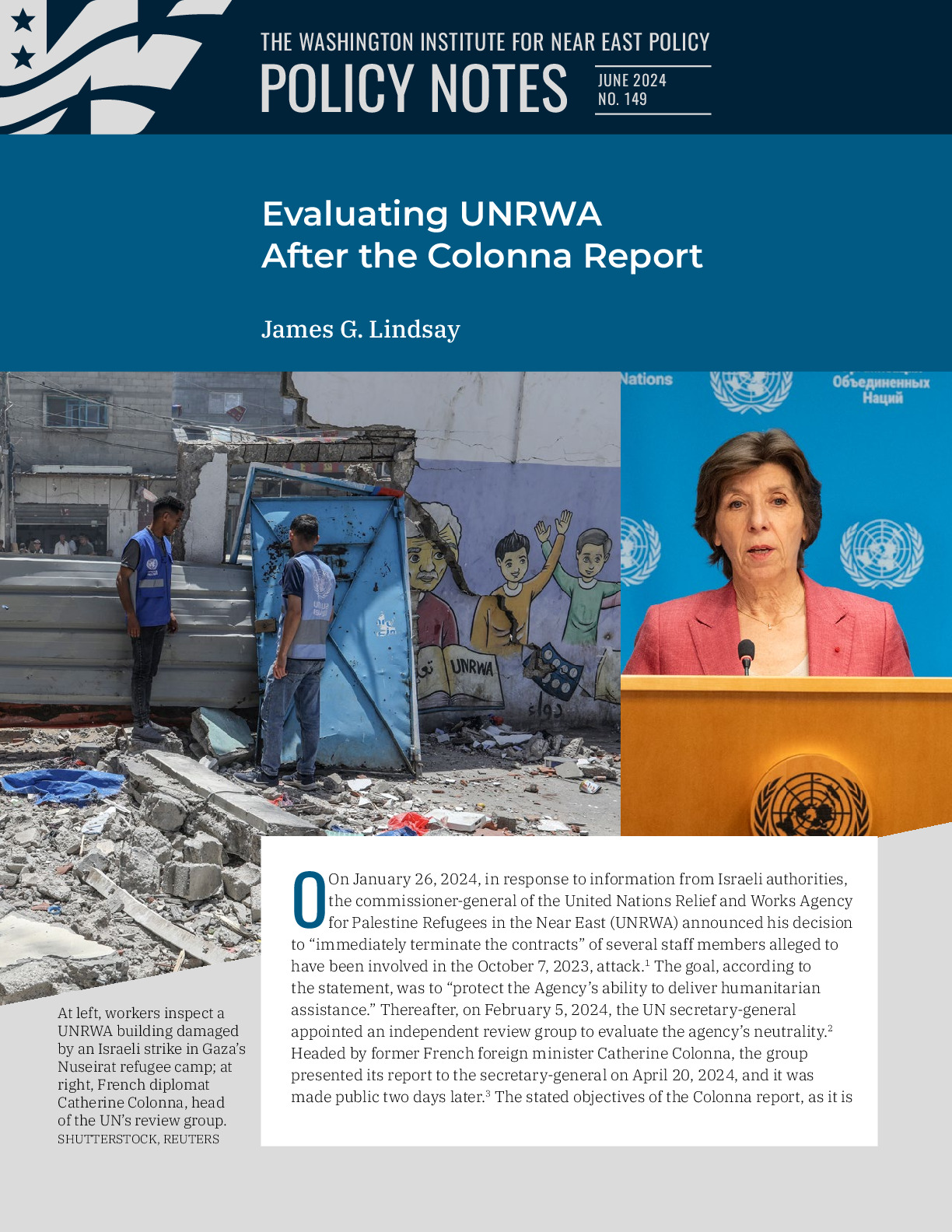

The obvious nature of multiple recommendations points to scandalous mismanagement at the UN aid agency over decades.
In April, the United Nations issued a report aimed at evaluating the neutrality of UNRWA amid allegations of staff links to Hamas and the October 7 attack. The Colonna report—informally named for the French diplomat who led the team—makes suggestions ranging from the mundane (improving managerial accountability) to the occasionally intriguing (digitizing educational content). But the obvious nature of many of the fifty recommendations points to scandalous mismanagement at the UN aid agency over many decades. Moreover, the longtime refusal to properly vet staff members for terrorist ties or remove violent, antisemitic references from educational materials reflects not just a management failure, but a moral failure.
In this Policy Note, former UNRWA general counsel James G. Lindsay scrutinizes the Colonna report for what it reveals and does not reveal about the agency’s failures, addressing dilemmas such as how to deal with governance issues when a terrorist group is in charge, and how to reconcile UNRWA’s loose definition of a “Palestine refugee” with the universally accepted definition set forth in the UN Refugee Convention.


